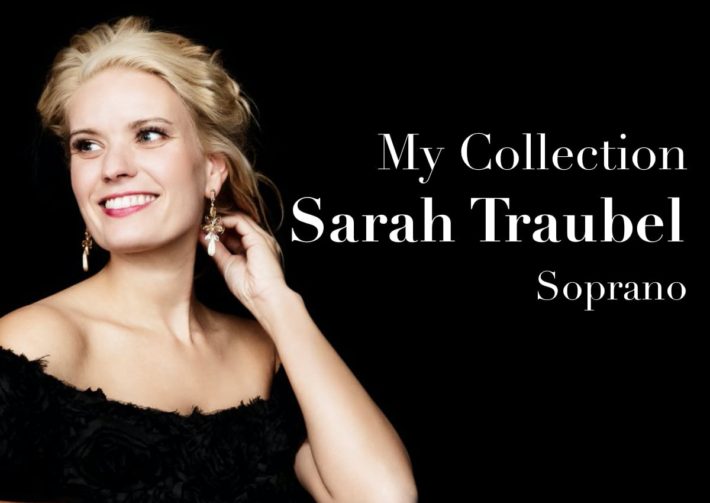Soprano Sarah Traubel writes for The Classic Review about three classical music albums she couldn’t live without.
Image: Harald Hoffmann
Bruckner – Symphony No. 4 (“Romantic”) – Berlin Philharmonic Orchestra – Wand
One of my very first musical memories is listening to recordings of Bruckner symphonies conducted by Günter Wand, my great-uncle. This severe and uncompromising servant of the score conducted mostly from memory, a statue on the podium. He was once asked by journalists if he intended to interpret Beethoven’s Ninth Symphony more like Furtwängler or more like Toscanini. He answered: “Like Beethoven”. The worldwide Bruckner revival was in great part lead by this wonderful conductor, and this 1998 live recording of the “Romantic” Symphony with its broad tempi and majestic tone shows why. ”God’s mad minstrel”, as Bruckner was often called during his time, found a musical language entirely of his own. I love to lose myself in the characteristic sound of his fairy world: The dark forests, rocky mountains, arcane creatures and the omnipresence of heaven assembled in a cathedral of sound, make my eyes shine with pure happiness.
Wagner – Die Meistersinger von Nürnberg – Bavarian State Opera Orchestra, Sawallisch
Most of my own repertoire as a singer used to be Mozart, but Wagner has always been with me, and not just because of my great-aunt and leading Wagnerian, Helen Traubel. Not many people remember that there used to be a direct line from singing the Queen of the Night and similar coloratura repertoire to Wagner’s dramatic soprano parts. My opera for a desert island would be his Meistersinger, certainly his funniest, most humane, most Mozartian work. If I had only one role to sing for the rest of my days, it would be Eva. The closing quintet offers some of the most beautiful but also most devilishly difficult music ever written for the human voice. In this recording by Wolfgang Sawallisch, to whom we also owe the famous Magic Flute recording with the great Edda Moser, the conductor leads a legendary cast which includes Bernd Weikl as a Sachs of warmth and wisdom and Siegfried Lorenz as a Beckmesser, who for once is not a contorted fool but a real singer. Most importantly, Cheryl Studer’s Eva with her amazing “O Sachs! Mein Freund!‘ totally gets me. Every single time.
Brahms – Ein Deutsches Requiem – Berlin Philharmonic Orchestra, Karajan
When I first sang the soprano part in Brahms‘ Requiem in my early twenties, the voice in my head was infallibly that of Gundula Janowitz. Her bright, silvery, glimmering tone is for me one of the greatest gifts mankind has received from heavens, seriously. She could sing Bach and Mozart, Weber and Wagner, Strauss or Mahler, every note from her was a miracle. I sometimes wonder if such a highly characteristic voice would find the necessary artistic support today, the way she had from Karajan and Böhm. Ms. Janowitz and her truly angelic “Ihr habt nun Traurigkeit” are the absolute highlights of this legendary 1964 recording.

Soprano Sarah Traubel gained international attention when she jumped in, with five minutes advance notice, as Konstanze in Mozart‘s “Entführung aus dem Serail” at Zurich Opera. A grand-niece of legendary Met diva Helen Traubel, she has sung many Mozart roles, including Queen of the Night, Contessa, Konstanze, Susanna, Donna Anna, Ilia, and Pamina, but also roles by Weber, Wagner, and Strauss. In 2020 Ms. Traubel will appear as Queen of the Night at the famous Baroque Opera festival of Beaune, France, and with the Jerusalem Symphony Orchestra, among others.
Visit Sarah Traubel’s website and her social media channels – Facebook, Twitter, Instagram and YouTube.











